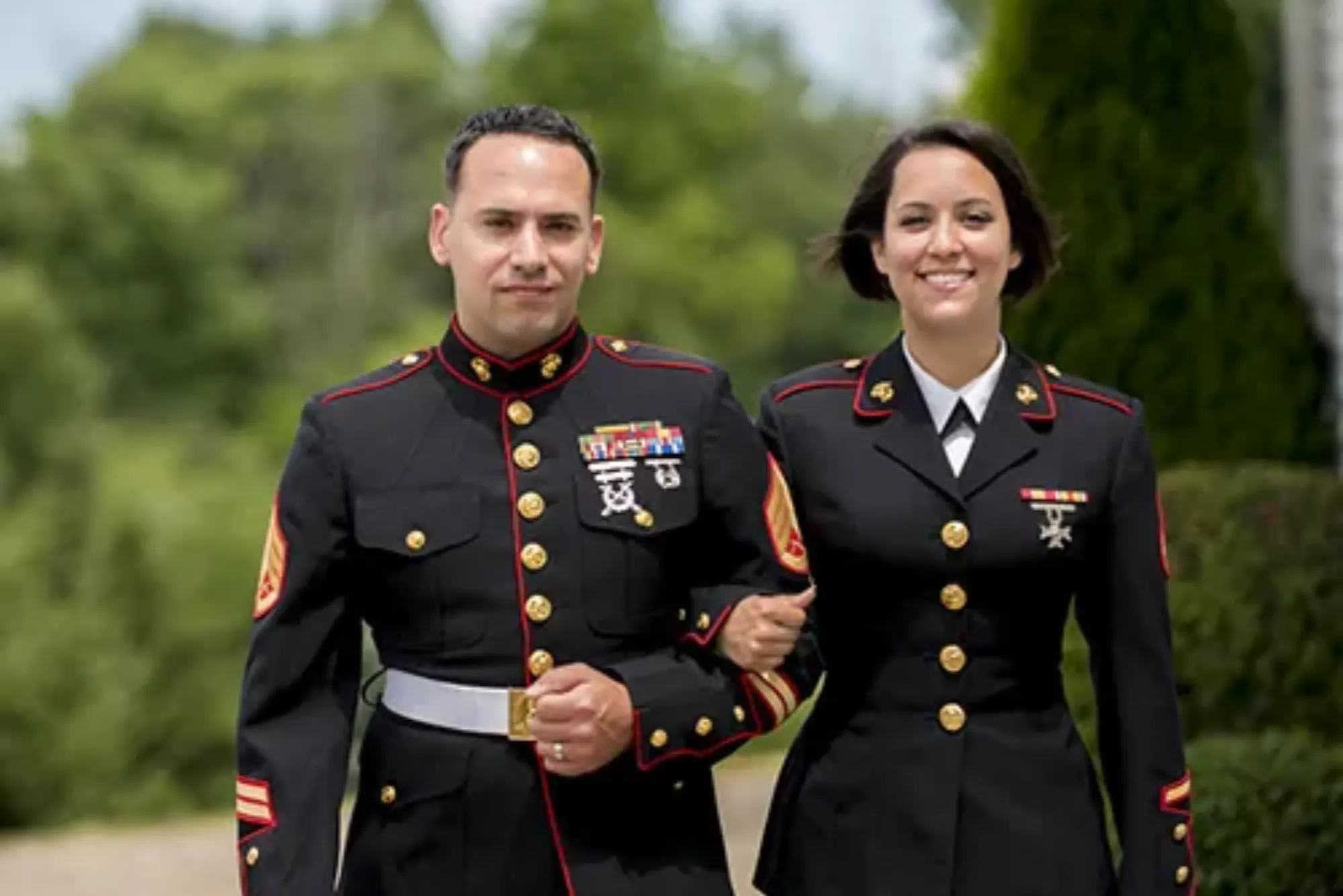Military School: Shaping Future Leaders
Military schools are specialized educational institutions that emphasize discipline, physical fitness, leadership development, and academic excellence. Originating centuries ago, they have evolved into modern institutions that offer a blend of traditional military training and academic rigor. These schools are designed to mold students into responsible, disciplined individuals prepared to succeed in both military and civilian life. The focus on structure and character development makes them distinct from regular educational institutions, with a commitment to shaping future leaders who are equipped to handle challenges in various fields.
Benefits of Attending a Military School
Academic Excellence and Discipline
One of the primary benefits of military schools is their strong academic foundation. Military institutions have a reputation for high academic standards, and they often offer rigorous coursework designed to challenge students intellectually. Discipline is at the core of the military school experience, fostering an environment where students are encouraged to take responsibility for their academic and personal growth.
Character Building and Leadership Training
Military schools focus heavily on character development, emphasizing values such as integrity, respect, and responsibility. Leadership training is a key aspect of this development, with students regularly given opportunities to take on leadership roles in various settings. This training helps instill confidence, decision-making skills, and the ability to work well in teams—qualities that are essential for success in both military and civilian careers.
Physical Fitness and Extracurricular Activities
Physical fitness is an integral part of military school life, with students required to maintain a high level of fitness through daily exercise, sports, and physical training. In addition to physical fitness, military schools also encourage participation in extracurricular activities such as debate, music, and community service. These activities help students develop a well-rounded character, improve their social skills, and build friendships that can last a lifetime.
Preparation for Military and Civilian Careers
While military schools are known for preparing students for military service, they also provide excellent preparation for a wide range of civilian careers. The skills learned in a military school, such as discipline, time management, leadership, and teamwork, are highly valued in various industries. Many military school graduates go on to excel in business, law, engineering, and government roles, demonstrating the versatility of the education they receive.
Types of Military Schools

Boarding Military Schools
Boarding military schools are the most traditional form of military education, where students live on campus during the school year. This type of school offers a full-immersion experience, where students engage in daily military training, academics, and extracurricular activities while living in a structured environment.
Day Military Schools
Day military schools provide a similar curriculum and discipline as boarding schools, but students return home at the end of each school day. These schools allow students to maintain a balance between their military education and family life while still benefiting from the academic and leadership training offered.
Co-Ed vs. Single-Gender Military Schools
Military schools can be either co-educational or single-gender. Co-ed schools provide a diverse environment where both male and female students can learn together, while single-gender schools may offer a more focused setting, particularly in terms of discipline and leadership development, where the environment is tailored to the specific needs of boys or girls.
Military Prep Schools vs. Junior ROTC Programs
Military prep schools are full-time institutions that prepare students for entry into military academies or service in the armed forces. In contrast, Junior ROTC (Reserve Officers’ Training Corps) programs are part of regular schools that offer military training on a part-time basis, allowing students to experience some aspects of military life while still attending a traditional high school.
How to Choose the Right Military School
Factors to Consider: Location, Curriculum, Fees, and Facilities
When choosing a military school, it’s important to consider factors like location, curriculum, fees, and facilities. Some schools may offer specialized programs, such as aviation or naval training, while others may focus on academic excellence or leadership development. Fees can vary widely depending on the type of school, so it’s essential to find an option that fits within your budget.
Accreditation and Reputation
Before enrolling in a military school, it’s crucial to check the institution’s accreditation and reputation. Accredited schools meet certain academic and ethical standards, ensuring that students receive a quality education. Researching alumni reviews and success stories can provide insight into the school’s reputation and its ability to produce successful graduates.
Reviews from Alumni and Parents
Reviews from past students and their parents can provide valuable insight into the school’s environment, discipline policies, and overall experience. Speaking with alumni can give a firsthand account of the challenges and rewards of attending a military school, helping you make an informed decision.
Admission Process for Military Schools
Eligibility Criteria and Age Requirements
Each military school has its own eligibility criteria and age requirements, but most schools accept students between the ages of 12 and 18. Some schools may have specific requirements for students applying to their programs, such as a certain level of academic achievement, physical fitness, or leadership potential.
Application Forms and Supporting Documents
The admission process typically involves completing an application form, submitting academic transcripts, letters of recommendation, and possibly attending an interview. It’s important to carefully follow the school’s guidelines for submission and provide all necessary documentation to ensure a smooth application process.
Entrance Exams and Interviews
Many military schools require prospective students to take an entrance exam, which may test academic knowledge, problem-solving skills, and physical fitness. Additionally, an interview may be required to assess the student’s character, motivation, and potential for success in a military environment.
Financial Aid and Scholarships
Military schools can be expensive, but many institutions offer financial aid and scholarships to help ease the financial burden. Scholarships may be based on academic performance, athletic ability, or need, so it’s worth exploring all available options to make military school more affordable.
Life in a Military School
Daily Routines and Schedules
Life in a military school is highly structured, with a set daily routine that includes classes, physical training, and extracurricular activities. Students are expected to follow a strict schedule, which helps instill discipline and time management skills. Early mornings, uniform inspections, and daily drills are all part of the military school experience.
Dress Codes and Discipline Policies
Uniforms and dress codes are a hallmark of military schools, reinforcing the importance of discipline and respect. Students are required to maintain a neat appearance at all times, and there are strict policies regarding behavior, attendance, and academic performance.
Interaction with Faculty and Peers
Military schools foster a close-knit community where students interact regularly with their peers and faculty members. Teachers and military staff play a significant role in shaping students’ lives, providing mentorship, guidance, and support throughout their education.
Stories from Military School Students
Many military school students share positive experiences, noting how the school helped them develop leadership skills, overcome personal challenges, and build lifelong friendships. Alumni often speak highly of the discipline, structure, and sense of accomplishment they gained during their time in military school.
Challenges of Military School Education

Adapting to Rigorous Schedules
One of the biggest challenges students face when attending military school is adapting to the rigorous daily schedule. The early wake-up calls, strict academic expectations, and physical training can be overwhelming, but students often emerge stronger and more resilient as a result.
Balancing Academic and Physical Activities
Military schools require students to balance both academic work and physical training. This can be challenging, especially for students who are more academically inclined or who struggle with physical activities. However, the ability to balance these two aspects of life helps students develop time management skills that benefit them long after graduation.
Emotional and Social Adjustments
Adjusting to the emotional and social aspects of military school can also be difficult, particularly for students who are away from home for the first time. The close-knit environment and strict rules can create feelings of homesickness or frustration, but many students find that they form strong bonds with their peers, which helps them adjust and thrive.
Famous Military Schools Around the World
Notable Institutions in the United States
The United States is home to some of the world’s most renowned military schools, including the United States Military Academy at West Point, the United States Naval Academy, and the Citadel. These prestigious institutions have produced countless successful military and civilian leaders, making them highly sought after by prospective students.
Prominent Military Schools in Europe and Asia
Military schools in Europe and Asia are also highly regarded, with institutions like the Royal Military Academy Sandhurst in the UK and the National Defense Medical Center in Taiwan attracting students from around the world. These schools are known for their rigorous training programs and high standards of academic excellence.
Alumni Success Stories
Many alumni from military schools go on to achieve great success in both military and civilian careers. Famous graduates include former U.S. Presidents, high-ranking military officers, and successful business leaders. Their stories serve as inspiration for students considering a career in the military or other leadership roles.
Military Schools vs. Traditional Schools
Key Differences in Curriculum and Philosophy
The curriculum at military schools is often more demanding than traditional schools, with a greater emphasis on discipline, physical fitness, and leadership development. The philosophy behind military schooling is to prepare students for the challenges of leadership, teamwork, and responsibility, which sets it apart from regular education systems.
Advantages and Drawbacks of Each System
While military schools offer a structured and disciplined environment that can foster personal growth and leadership, they may not be the right fit for every student. Traditional schools may offer more flexibility, creativity, and extracurricular options, but they may not provide the same level of structure and discipline that military schools do.
The Future of Military Schools
Adapting to Modern Educational Needs
Military schools are evolving to meet the demands of the modern educational landscape. Many are incorporating new technologies into their curricula, offering online learning options, and providing specialized training in areas such as cybersecurity and engineering.
Technological Advancements in Training
With the advancement of technology, military schools are integrating state-of-the-art training methods, such as simulation






